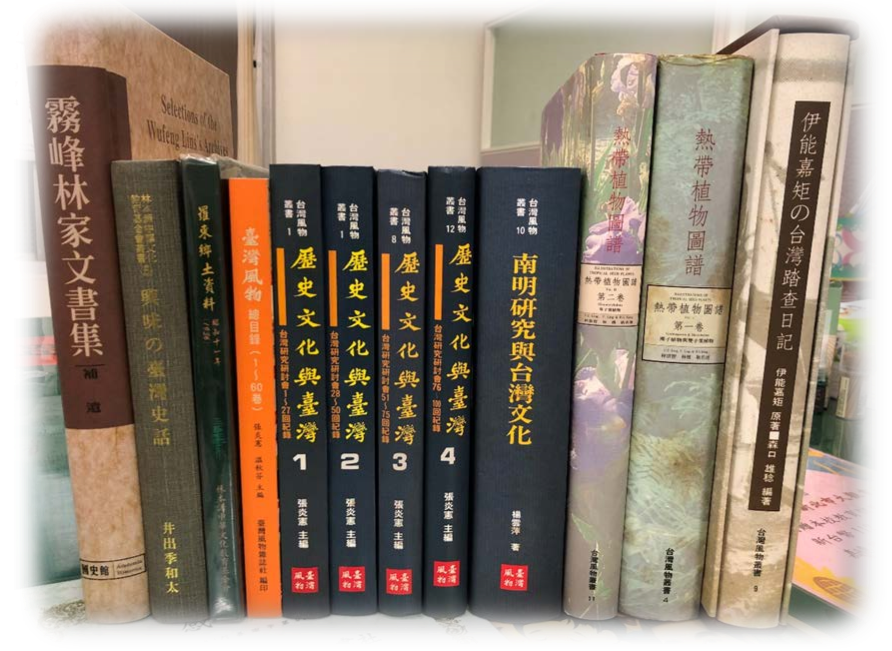
二二八事件
The 228 Incident
李筱峰/Professor Li Hsiao-feng
(世新大學教授/Shih Hsin University )
2001-02-28

On the morning of February 28, 1947,
people in Taipei surround the Taipei
Branch of the Monopoly Bureau.
「二二八事件」於國府接收台灣後不到一年 半之時間發生,源自緝私員與憲警單位 因緝私煙處理失當,始導致二月二十八 日部分台北市民之請願示威,並罷工、 罷市。又因當日發生公署衛兵槍擊請願 民眾事件,紛亂益發不可收拾,乃由請 願懲兇一變而為對抗公署,進而激化為 省籍衝突。此一抗爭與衝突,迅即蔓延 全島,使原本單純的治安事件變質為政 治運動,地方領袖乘機要求全面改革, 部分地區並因接收軍警武器,以致發生 武裝衝突。台灣終戰初期的政治、經濟 、社會、文化的變貌,則是二二八事件 及其往後歷史的伏筆;二二八事件對往 後台灣各方面之影響,既深且鉅。因此在紀念二二八事件的今天,請到世新大學李筱峰教授執筆,細數當年二二八事件的經過與結果,探討此以事件對台灣人心靈所造成的影響。
The 228 Incident, which occurred less than a year and a half after Retrocession, started out with anti-smuggling personnel and military police units, because anti-tobacco smuggling units dealt with a case inappropriately, which led to a petition by the people of Taipei to demonstrate on February 28, and a strike by industrial workers and storekeepers. And because on that day government guards shot at the petitioning crowds, the confusion could not be contained, and so the petition to punish the murders turned into a fight against the government, and went on to become a conflict between the people of Taiwan and the mainlanders. The resistance and conflict immediately spread throughout the entire island, making what was originally just a public security incident into a political movement. Local leaders took the opportunity to demand all-out reform, and because some areas were armed with military and police weapons, armed conflict ensued. This transformed the face of Taiwan’s politics, economics, society and culture in the immediate postwar period, foreshadowing what was to come after 228. The 228 Incident’s subsequent influence on all of Taiwan has been deep and serious, and because today is 228 Remembrance Day, we have invited Professor Li Hsiao-feng of Shih Hsin University to write an account of the 228 Incident, and its effects, and to look at the influence it has had on the psyche of the Taiwanese people.
『祖國』的幻滅
二次大戰結束後,擺脫日本統治的台灣人民,將希望寄託在海峽對岸的中國,熱烈迎接這個心目中的『祖國』。沒想到,真正的中國降臨台灣後,他們才發現這個中國與心目中的『祖國』相差甚遠,簡直難以適應。
Illusions of the “fatherland” shattered
After the end of the Second World War, the people of Taiwan had shaken off the Japanese colonial government and were hoping that they could put their hope in China on the other side of the Taiwan Strait, and they welcomed what they saw as the “fatherland” with open arms. They never dreamt that after the real China arrived in Taiwan, they would discover that this China was very different from the image of the “fatherland” they had held
in their minds, and it was difficult to adjust.
以『征服者』的心態凌駕台灣
新來的中國政權以『征服者』的心態凌駕台灣。首先,無視於台灣人早有追求民主自治的歷史經驗,在台灣設立了無異於日本總督府的『台灣行政長官公署』的制度,是集行政、立法、司法、軍事等大權於一體,無異是日本殖民統治的延續。在『台灣行政長官公署』的新殖民體制下,中國人壟斷權位、牽親引戚、苟且徇私、外行領導內行、『接收』變成『劫收』、官場貪污腐化之風,立刻讓台灣人民開了五十年未開之眼界。
Riding roughshod over Taiwan with the mentality of “conquerors”
The newly-arrived Chinese regime rode roughshod over Taiwan with the mentality of conquerors. First, disregarding the fact that the people of Taiwan had earlier in their history pursued democratic autonomy, and instead set up a system of “Taiwan Provincial Governor’s Office” no different from the Japanese governor-general system, which gathered together the major authorities – administrative, legislative, judicial and military – into one body, exactly as if they were carrying on Japanese colonial rule. In the new colonial system of the Taiwan Provincial Governor’s Office, the mainlanders monopolized power and position, and favored their friends and relatives, put outsiders in specialist positions, and instead of taking over responsibility for Taiwan, they plundered it. Officialdom became rife with corruption, and immediately the Taiwanese people’s eyes were opened to a reality to which they had been blind for fifty years.
民不聊生
在經濟方面厲行全面壟斷的統治經濟。標榜『國家社會主義』的行政長官陳儀,有鑒於日治時代專賣制度成效卓著,因此不顧本身的政治文化與官場陋習,一昧沿襲。對樟腦、火柴、酒、菸、度量衡等物品全部納入專賣。此外尚有許多民生物資,則由專賣局之外的機構來厲行統治,無論從交通、運輸、堆棧、農產品、漁業畜牧、鋼鐵、電力、水泥、機械製造、石油、工程、造紙、印刷、紡織、磚瓦、油脂、電工器材、化學藥品、製鹽等等,無一不在統制之列。統制經濟如果能公事公辦,亦非不可取。但是,偏偏在『紅包通神』的官場文化下,官商勾結,或亦官亦商,使得許多違禁的進出口品能夠自由進出,官商從中獲取暴利。這套伴隨著貪污文化的經濟統制措施,帶給台灣的禍害是至為明顯不過了。尤以米糧的短缺,造成民生的痛苦、社會的不安最為顯著。而米糧的短缺,除了因為應付國共內戰,在台灣強徵米糧以支援國府軍之外,又因為官商勾結、囤積米糧、哄抬物價,有以致之。以台北市零售米價上漲情形來看,從終戰到二二八事件前,一年四個月之間,台北市零售米價漲了四百倍。台灣的財富受到有系統的掠奪,日本人所留下的兩百三十七家公私企業,六百多個單位,通通納入『台灣行政長官公署』所屬各處局所設的二十七家公司來經營。加以『外行領導內行』,以及人謀不臧,因此生產力大降,戰後第一年的生產指數,竟不及戰前的一半,台灣人享受到比戰前更民不聊生的果實。失業人口激增,六百多萬人口的台灣,就有四十萬到八十萬失業人數的紀錄。
Life becomes impossible A total monopoly on was rigorously enforced onmanaging the economy. Governor General Chen Yi,vaunted “national socialism” in view of theoutstanding results of the Japanese-era monopolysystem, and consequently, despite the KMT’s ownpolitical culture and official abuses, began tofollow this practice without exception. Camphor,matches, alcohol, tobacco, and measuringinstruments were all sucked into the monopoly.Apart from this, there were still many everydaynecessities which were strictly dominated bybodies outside of the Alcohol and TobaccoMonopoly Bureau, no matter whether they werecommunications, transport, warehouses,agricultural products, fisheries and pasturage,iron and steel, electricity, cement, mechanizedmanufacturing, petroleum, engineering, papermills, printing, textile industries, bricks andtiles, oil, electrical equipment, chemicals,salt industry – every last one of these wasunder their control. If the controlled economyhad been practiced according to principle, itwould not necessarily have been undesirable.But it so happened that under this officialculture where bribes could bring you anythingyou wanted, officials and businessmencollaborated, or else officials werethemselves businessmen, with the result thatmany illicit imports and exports were freelytraded, and both officials and businessmen madevast profits from this. This controlled economicsystem was accompanied a culture of corruption,and the disaster it brought Taiwan was extremelyevident. The rice shortages in particularcreated incredible hardship in everyday life,and social unrest was very clear. But the riceshortages were due not only to the enforcedsupport in Taiwan of KMT troops to meet theneeds of the civil war between the KMT and theCCP in China, but also to official-merchantcollaboration to hoard rice for marketspeculation, and artificial price hikes,which led to rice shortages. Looking at theinflation in retail rice prices in Taipei Cityfrom the end of the Second World War until justbefore the 228 Incident, in 16 months, retailrice prices in Taipei City shot up 400-fold.Taiwan’s wealth was systematically plundered,and the 237 privately- and publicly-ownedenterprises left behind by the Japanese, andover 600 government units, were completelyabsorbed into the 27 companies set up and runby the various offices of the Taiwan ProvincialGovernor’s Office’s. On top of this, the placingof outsiders into specialist positions, andincomplete planning led to a huge fall inproductivity, and the production index for thefirst year following the end of the war was lessthan half of pre-war annual productivity, andcompared to the pre-war period, the Taiwanesepeople no longer had enough to live on. Theunemployment figures soared, and of Taiwan’spopulation of over 6 million, there were a record400 to 800 thousand out of work.
社會上的動盪與不安
而社會上,盜賊橫行,軍憲紀律敗壞。許多來自中國大陸的軍人,除偷竊之外,耍賴、詐欺、恐嚇、調戲、搶劫、殺人…無所不為,欺民擾民,作威作福,一派土匪作風,另台灣民眾痛心疾首。一九四六年,台灣社會已經動盪不安,軍人開槍滋事,與民眾衝突的案件,屢見不鮮。因此,國民政府接管台灣第二年,社會治安嚴重惡化,一年之間刑事案件增加了二十八倍。
Social upheaval and unrestSocially
Taiwan was overrun with thieves,and military police discipline was a corruptshambles. Apart from petty pilfering, manymilitary personnel from mainland China werealso dishonest, deceived and intimidated,molested women, robbed, killed…they stoppedat nothing, they insulted and harassed people,abused their power, like a bunch of bandits onthe rampage, and caused deep and bitterresentment among the ordinary people of Taiwan.In 1946, Taiwan society was already in upheaval,and cases of soldiers opening fire, stirring uptrouble and clashing with ordinary people werenothing out of the ordinary. As a result, in thesecond year after the KMT government took overcontrol of Taiwan, social unrest took a seriousturn for the worse, and in the space of a year,criminal cases increased 28 fold.
二二八事件的爆發
總之,經過一年半的蹂躪與掠奪,台灣社會倒退了三、四十年。因此,在所謂『光復』的一年四個月後,終於爆發了二二八事件。一九四七年二月二十七日晚,台北市延平北路發生專賣局查緝員打傷女菸販並釀成槍擊民眾致死命案,二十八日台北市民向相關機關抗議未果,反遭行政長官公署機槍掃射,情勢一發難收,擴及全島,各地蜂起,全島騷動。事件的發展循著兩條路線進行,一為武裝抗爭路線,一為政治交涉路線。前者指的是出現在各市鎮的武裝民兵,對憲警機關的攻擊行動﹔後者則是由民意代表及地方士紳組成的『二二八事件處理委員會』,與行政長官陳儀交涉善後處理事宜,進而提出政治改革要求。在『二二八事件處理委員會』的交涉與斡旋之下,情況漸趨穩定,然而陳儀對於『二二八事件處理委員會』提出的政治改革,表面上虛與委蛇,宣稱民眾如有任何意見,可經由處理委員會反映,他會盡量接納改進,但一方面卻打電報向南京中央政府請兵來台。國府主席蔣介石聽信在台軍政特務人員一面之詞,貿然派兵來台。三月八日晚,國府軍隊奉派抵台,展開鎮壓,釀成屠殺,繼之以『清鄉』之名,進行全島性捕殺,台灣社會菁英犧牲殆盡,民眾傷亡慘重,死亡人數約一萬至兩萬人。
The Eruption of the 228 Incident In sum, after a year and a half ofdevastation and plunder, Taiwan society
waspushed back thirty or forty years. As aresult, 16 months of so-called “Retrocession”culminated in the eruption of the 228Incident. On the evening of February 27, 1947,an agent from the Alcohol and Tobacco MonopolyBureau struck and injured a woman illegallypeddling tobacco on Yenping Road in TaipeiCity, and this led to another member of thepublic being shot and killed. On February 28,citizens of Taipei protested to the relevantorganizations to no avail, in fact they metwith machine-gun fire from the Governor’sOffice. Once the situation had broken out,it was hard to contain, and it spread acrossthe island, as people rose up in every placeand rioted all across Taiwan. The developmentof the Incident proceeded along two main lines:one was armed resistance, the other waspolitical negotiating. The former manifesteditself in the appearance of armed militiamenin every town and city, carrying out attackson police and military bodies; the latter wasthe organization of popular representativesand local gentry into a “February 28 IncidentSettlement Committee” who negotiated withGovernor Chen Yi about dealing with theproblems arising from the Incident, andalso went further to bring up demands forpolitical reform. With the negotiations andmediation of the “February 28 IncidentSettlement Committee”, the situation graduallybegan to stabilize, but Chen Yi paid no morethan lip service to the suggestions of theCommittee concerning political reform. Heannounced that if the populace had anysuggestions, they should make them to theCommittee, and he would do his best toaccommodate them, but he also sent a telegramto the central government in Nanjing askingfor troops to be sent to Taiwan. The KMTgovernment leader, Chiang Kai-shek, wasreceptive to the one-sided statements ofmilitary special agents stationed inTaiwan and hastily sent troops to Taiwan.On March 8, the KMT troops arrived inTaiwan, and began to a quelling whichturned into a massacre, and continued as whatbecame known as “country sweeping,” anisland-wide program of arrest and slaughter.The elite of Taiwanese society was sacrificedalmost in its entirety, and there were heavycivilian casualties, with a death tollsomewhere between 10,000 to 20,000.
埋下黑金政治的伏筆
二二八事件帶給台灣的,不只是家破人亡的悲劇而已,還為台灣往後的政治與社會種下既深且鉅的影響:一分面,台灣人的性格受到嚴重的扭曲,過去一直處於外來殖民統治下的台灣人,顯得更加卑屈自辱,處處都要表現其不敢違抗統治者以求安全自保的奴隸性格﹔另一方面,台灣人民對政治產生恐懼、灰心、失望。這種對政治的恐懼感與冷漠感,有利於國民黨的一黨專政,不利於民主憲政的發展﹔再者,台灣社會領導階層架空,便利國民黨的統治。許多劫後餘生的社會菁英不願再與聞政治,地方政治體質改變,劣幣驅逐良幣,土豪劣紳、黑道流氓、地方政客,逐漸進入地方政壇。台灣的黑金政治在二二八事件之後早已埋下伏筆。
Sowing the seeds of ‘black gold’ politicsThe 228 Incident not only destroyedTaiwanese families with death and tragedy,but also had a huge influence on the futurepolitics and society of Taiwan. On one hand,the character of the Taiwanese people wasseverely distorted: in the past they hadbeen colonized by foreign rule, but nowthey were even more lowly and humiliatedthan before, and began to show slave-likepersonalities which sought only their ownsafety and protection, and didn’t dare defythe rulers. On the other hand, the peopleof Taiwan were terrified of, disheartenedby and disappointed in politics. This fearand lethargy towards politics helped theKMT’s one-party dictatorship, but not thedevelopment of democratic, constitutionalgovernment. Furthermore, Taiwanese societywas now devoid of people with leadershipcaliber, which was convenient for KMTpolitics. Many of the surviving membersof the social elite were unwilling to getinvolved in politics again, theconstitution of local politics changed,the bad chased out the good, and corruptlocal gentry and criminal elements alongwith local politicians gradually began todominate the local political world. Theseeds of Taiwan’s “black gold” politicswere sown in the aftermath of the 228Incident.
深切的教訓與啟示撫今追昔,二二八的歷史應給我們深切的教訓與啟示:一九四五年的所謂『台灣光復』是台灣與中國的一次『統一』。一九四七年的二二八事件,則是這次『統一』的後遺症。引起這個後遺症的主要癥結,在於台灣與中國兩個社會的差距太大,體質不同,彼此適應不良。這種適應不良,可說是統治文化水準較落後的一方統治文化水準較高的一方,所產生的壓制與反抗的循環過程。今天,大陸上的中華人民共和國無論是政治制度、社會結構、法律系統、文化內涵、生活價值、人權指數…,都與台灣迥然互異,落差極大。台灣若再被『統一』,真令人擔心二二八事件又要重演!台灣全體住民能不能從歷史與現實中展望未來嗎?
Heartfelt education and inspirationReflecting on the past in the light of thepresent, the history of the 228 Incidentis both deeply educational and inspiring:the so-called “Taiwan Retrocession” of 1945was the first “unification” of Taiwan andChina. The 228 Incident of 1947 was the”sequel” of this “unification.” A crucialfactor leading to this reaction lies inthe fact that the difference betweenTaiwanese and Chinese society was too great,and their constitutions too different, andso they did not adapt well to one another.This unsuitability could represent thecyclical process of repression and resistanceproduced by the fact that the side with lowerpolitical cultural standards ruled the sidewith higher political and cultural standardshigher on the other, so the repression andresistance produced were part of a cyclicalprocess. Today, the PRC on the mainland istoo distant from Taiwan, and too far behindin everything, be it political system, socialstructure, legal system, cultural content,lifestyle values or human rights indices. IfTaiwan is “unified” again, there is a realconcern that the 228 Incident will be replayed!Can Taiwan’s inhabitants predict the futurefrom the past and present?
Edited by Hsu, Shiou-Iuan/ translated by Elizabeth Hoile
(許琇媛編輯/何麗薩翻譯)









